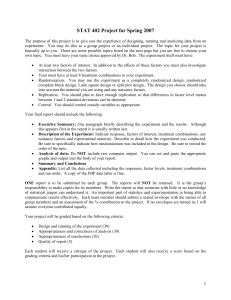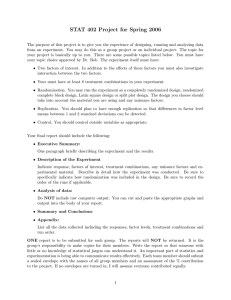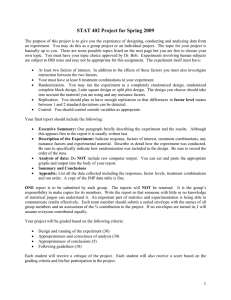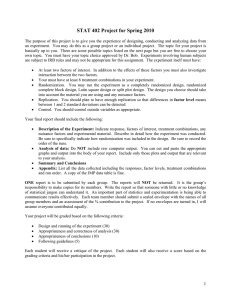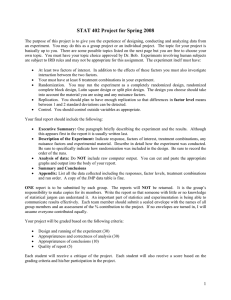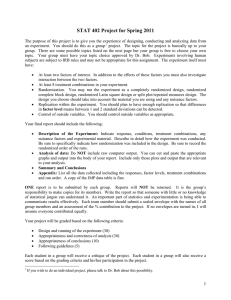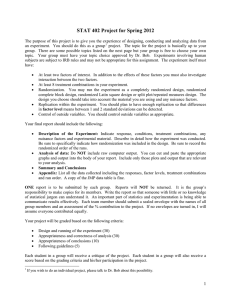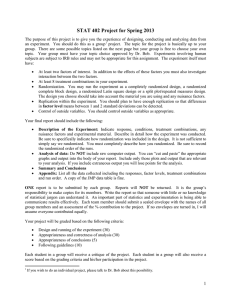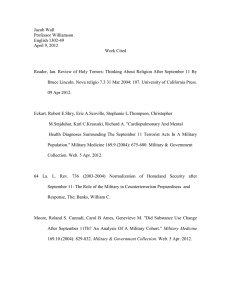STAT 402 Project for Spring 2005
advertisement
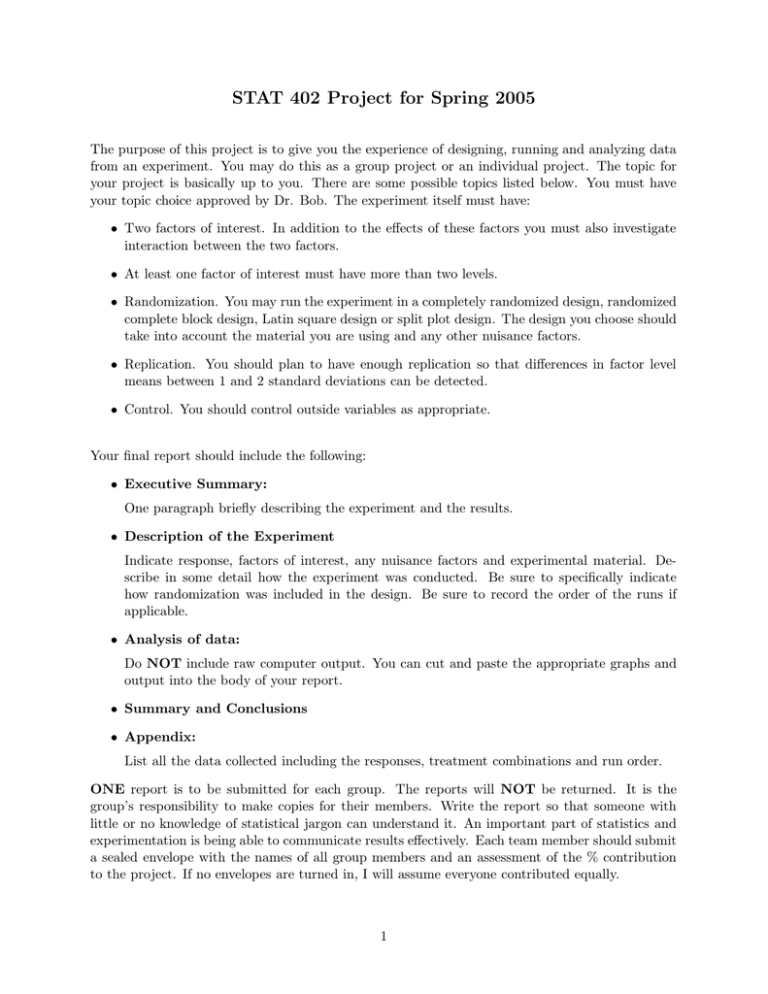
STAT 402 Project for Spring 2005 The purpose of this project is to give you the experience of designing, running and analyzing data from an experiment. You may do this as a group project or an individual project. The topic for your project is basically up to you. There are some possible topics listed below. You must have your topic choice approved by Dr. Bob. The experiment itself must have: • Two factors of interest. In addition to the effects of these factors you must also investigate interaction between the two factors. • At least one factor of interest must have more than two levels. • Randomization. You may run the experiment in a completely randomized design, randomized complete block design, Latin square design or split plot design. The design you choose should take into account the material you are using and any other nuisance factors. • Replication. You should plan to have enough replication so that differences in factor level means between 1 and 2 standard deviations can be detected. • Control. You should control outside variables as appropriate. Your final report should include the following: • Executive Summary: One paragraph briefly describing the experiment and the results. • Description of the Experiment Indicate response, factors of interest, any nuisance factors and experimental material. Describe in some detail how the experiment was conducted. Be sure to specifically indicate how randomization was included in the design. Be sure to record the order of the runs if applicable. • Analysis of data: Do NOT include raw computer output. You can cut and paste the appropriate graphs and output into the body of your report. • Summary and Conclusions • Appendix: List all the data collected including the responses, treatment combinations and run order. ONE report is to be submitted for each group. The reports will NOT be returned. It is the group’s responsibility to make copies for their members. Write the report so that someone with little or no knowledge of statistical jargon can understand it. An important part of statistics and experimentation is being able to communicate results effectively. Each team member should submit a sealed envelope with the names of all group members and an assessment of the % contribution to the project. If no envelopes are turned in, I will assume everyone contributed equally. 1 Your project will be graded based on the following criteria: • Design and running of the experiment (30) • Appropriateness and correctness of analysis (30) • Appropriateness of conclusions (10) • Quality of report (5) Each student will receive a critique of the project. Each student will also receive a score based on the grading criteria and his/her participation in the project. Time table: You may submit work anytime on or before the listed dates. Submissions after the dates listed below will result in deductions from your project score. • Apr. 4: Groups formed and topic chosen. Each group should submit a list of the names of group members and the topic chosen. Comments on project proposals will be returned Apr. 6. Do not start on your project until you get approval from Dr. Bob. • Apr. 11: Groups submit details of the experiment. What factors will be manipulated? What levels are there for each factor? What design will be used? Comments on project details will be returned Apr. 13. • Apr. 22: Data collection completed. A copy of the data must be submitted and no changes to the data can be made after submission. You should email (wrstephe@iastate.edu) the data in the form of a JMP data file. • Apr. 29: Final report due. Each group should submit only one report that includes all group members’ names. Reports will NOT be returned. Each individual will receive a critique of the project and a project score. Project Ideas Listed below are some possible topics for investigation. All topics require you to actually design and conduct an experiment. Whether you come up with your own topic to investigate or use one of the topics below, you must check with Dr. Bob before you proceed. • Quality of paper towels, toilet paper, tissues, etc. • Quality of microwave popcorn. • Quality of batteries. • Paper airplanes or helicopters. • Strength of glue. • Roll of a golf ball on a putting green. • Germination of seeds. • Distance a golf ball travels when struck with a golf club. 2
